It doesn't make any sense to me.
Take a look, for example, at Why We Lost. List price is $28. Amazon sells the hardcover ("dead tree") for $20.97 and its Kindle price is $14.99. Barnes and Noble* offers it for $21.47 and for the Nook, it's $15.49.
Are the printing and distribution costs for each hard copy book really only about six bucks? That's what the difference between the E-book and the real hardcover price would have one believe.
____________________________
* Barnes and Noble's motto: "You Can Always Get It For Less From Amazon."
Tuesday, November 11, 2014
Subscribe to:
Post Comments (Atom)

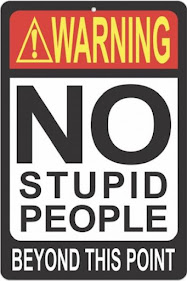

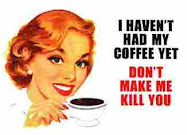
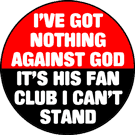


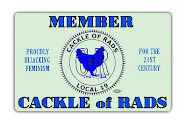
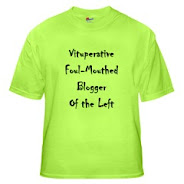
8 comments:
Book prices, like most products, are set to maximize profits, not just cover costs plus some percent profit. Believe me, if they could charge twice as much, and they would.
It costs about 50 cents to print a typical paperback, and about $1.50 to print a typical hardcover. When you buy paper and ink by the ton and own your own printing presses amortized over a 20 year lifespan, it gets real cheap. The real problem is that the typical fiction book only sells 1,500 copies. That's the vast majority of books. All it takes to be a mid-tier author is 40,000 sales. And you can make it onto the best seller list with only 120,000 sales.
Each book has an author, an editor, a proofreader, a typesetter, cover artist, publicist, etc. all of whom need to be paid (yes, I know these resources are shared between multiple books, with the exception of the author, but they all still need to be paid). Publishers do this by hiking prices as high as they can without hurting sales, especially on best sellers.
Publishers actually ARE making less money on eBooks. eBooks need all the same people as regular books -- editors, etc. -- all of which comprises the majority of the cost of a regular book. yet the reduction in price far outweighs the reduction in printing costs. To a certain extent this is because people value eBooks less, and to a certain extent it is because the eBook distribution business is an oligopoly controlled by three companies -- Apple, Amazon, and B&N -- who in turn have significant power to dictate terms to the hundreds of publishers in the fragmented publishing industry.
Irregardless of all that, publishing is a fairly low-profit business and if they seem to be searching for a consistent pricing model, it's because their current one appears to be incapable of keeping them in business. There's been a growing trend in recent years of mainstream publishers selling off less popular lines to individual editors who can put together books on the kitchen table without the overhead of office space and etc. That's the only reason we still have science fiction magazines, and many of the smaller science fiction novel imprints are put together that way too.
Sad to say, people just don't read books anymore. Sigh...
The FIRST book in any edition costs a small fortune, sice the costs have to cover author(s), an editor, a proofreader, a typesetter, a cover artist, a publicist, etc.
The incremental cost of the subsequent books of an edition are peanuts. So the publisher sets the wholesale price depending on how many he thinks will be sold. The bookseller takes a 50% markup.
For those of us who write textbooks, with a low number of sales, the resulting prices can be almost beyond students' means :-(
Re: Barnes and Noble's motto: "You Can Always Get It For Less From Amazon
Amazon is cheaper because they have a lock on the book (DRM), on your possession of it (they can yank it back) and on you (their profile or everything you read and buy). B&N hardly at all: they use the non-DRM .epub non-proprietary format, commonly available direct from many epublishing sites and from authors themselves. You possess the files in your hot little hand (or drive or chip). It's worth the extra to be free of Big Brother Amazon.
Sdean, B&N's books are indeed encrypted, ePub was designed by Adobe to have DRM. B&N's DRM is rather simplistic (all you need is the credit card number you bought the ebook with in order to decrypt it) but it's there -- try opening a book you downloaded in a DRM-free ePub reader like Calibre and it'll say "nuh-uh, no way." Well, unless you install a decrypt hack plug-in and give it your credit card numbers to decrypt the ePubs.
That said, I do prefer B&N's ebooks for another reason -- they look better than Amazon ebooks. That's because ePub is a more expressive publishing language than the .pdb format Amazon uses. Amazon's format dates back to the days of the Palm Pilot, which it was originally designed for. ePub was specifically designed to run on modern eBook readers.
sdean, Amazon's "yank back" thing only works if you permit your Kindle to talk to Amazon. But if you use the cable that came with it to hook the Kindle to your computer, then you can download books to your Kindle and it's all one-way.
Even better if you DL it forst to your computer and then transfer it over.
Plus, if you never turn the Kindle out of "airplane mode", the batter life is a lot longer.
We've had three BN Nook readers in our house. My wife still uses her Nook Tablet. While I no longer use my original Nook or Nook Color, on all my devices (smartphone, Win8.1 tablet, and Win7 laptop) I continue to use the Nook app. I'm already in the BN ecosystem, of course, but overall I like the Nook app's usability and flexibility much more. For instance, I can download .epub files off the web and it'll import them, no problem.
Mark, I have a Kindle. I have a buttload of books on it from Project Gutenberg and other places that have public-domain works.
Post a Comment